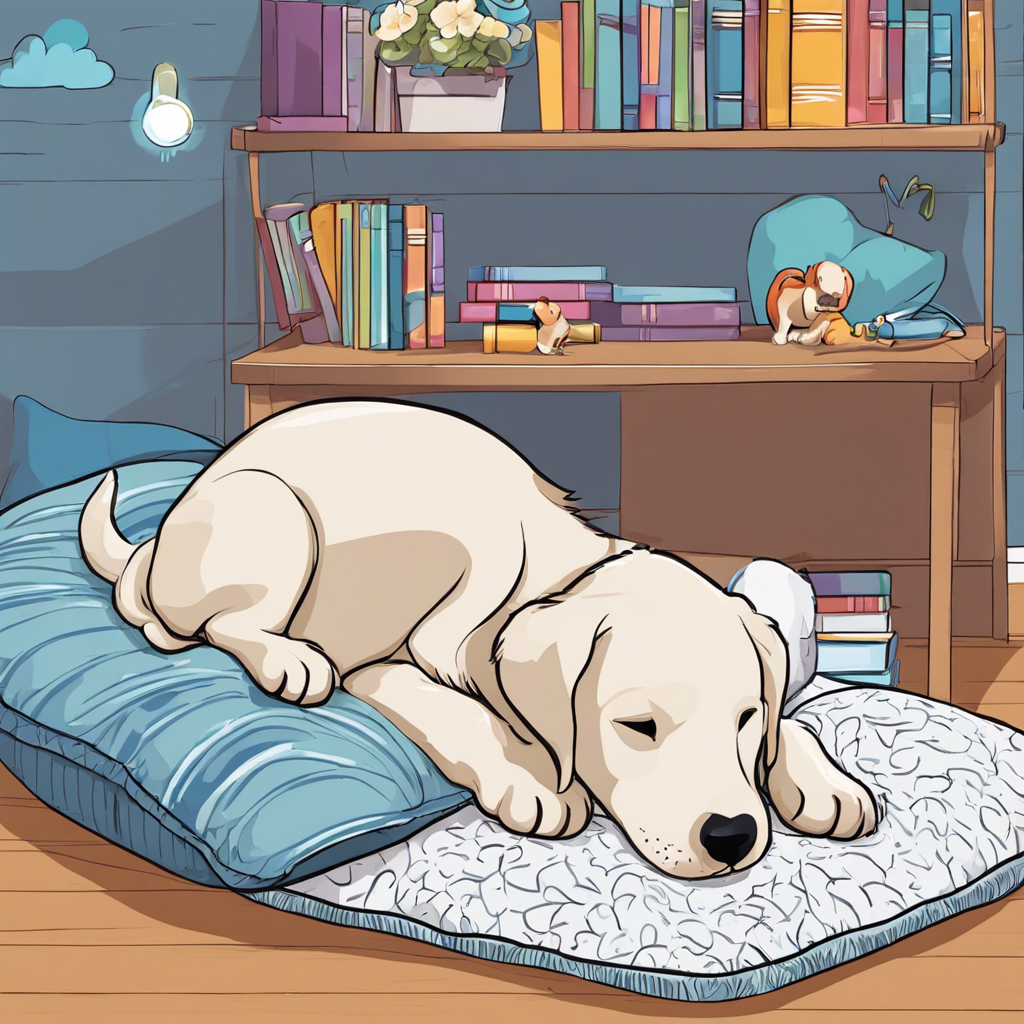# Sleep Training Your Puppy: Tips for a Peaceful Night’s Rest
Bringing home a new puppy is an exciting adventure but getting them to sleep through the night can be a challenge. Sleep training your furry friend is an essential step in ensuring a well-rested and happy household for both you and your four-legged companion. Here’s a guide to establishing a nighttime routine that will have your puppy dreaming peacefully in no time!
**Understanding Puppy Sleep Patterns**
Puppies, much like human babies, have unique sleep patterns. They tend to sleep for short periods throughout the day and night, totaling around 18-20 hours of sleep in a 24-hour cycle. Understanding this is crucial to managing your expectations and knowing that frequent waking is normal. During their sleep, puppies progress through REM and non-REM sleep cycles, and their brains develop and process the day’s events. As they mature, their sleep patterns gradually align more with ours, resulting in longer periods of uninterrupted sleep.
**Creating a Calming Environment**
Designating a specific sleeping area for your puppy is the first step to a peaceful night. Whether it’s a cozy crate, a comfy bed, or a puppy playpen, ensure it’s located in a quiet, low-traffic area of your home. Adding blankets, toys, or a piece of clothing with your scent can help your puppy feel secure and comfortable. Keep the area free from distractions and maintain a consistent routine for bedtime and wake-up times. This consistency will train your puppy’s internal clock and help them anticipate sleep.
**Establishing a Bedtime Routine**
Just like humans, puppies thrive on routines. Develop a soothing bedtime routine that signals it’s time to wind down. This can include a final trip outside for potty breaks, followed by a quiet game or gentle play, and a final snack. Avoid stimulating activities and excessive exercise close to bedtime, as this can energize your puppy. End the routine with a calm activity, such as a short massage, to relax your puppy and prepare them for sleep.
Consistency is key. Stick to the routine, and your puppy will soon associate these activities with bedtime, making it easier for them to settle down. Over time, they’ll learn to anticipate this routine and will be more likely to sleep through the night.
The process of sleep training your puppy takes patience and persistence, but the rewards are well worth it. By implementing these strategies and being consistent, you’ll create a peaceful sleeping environment for your furry friend, ensuring everyone in your home gets the rest they need. Stay tuned for more puppy-parenting tips, and remember, a well-rested puppy is a happy puppy!

